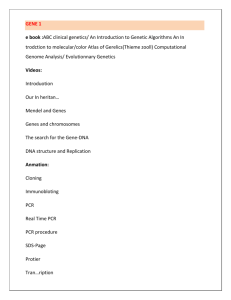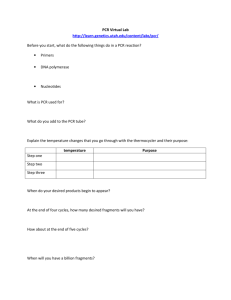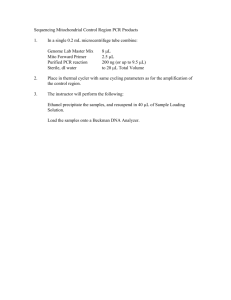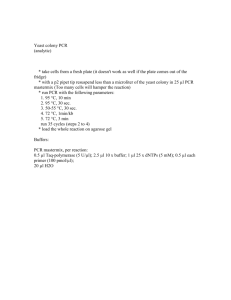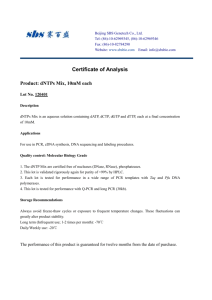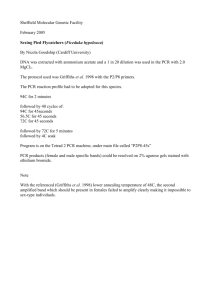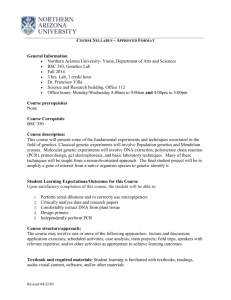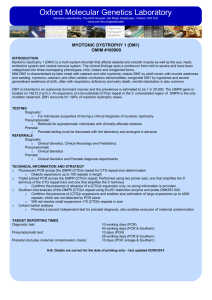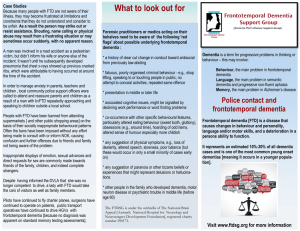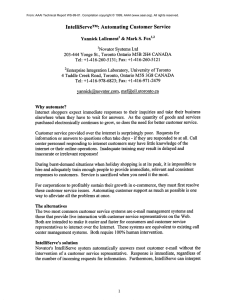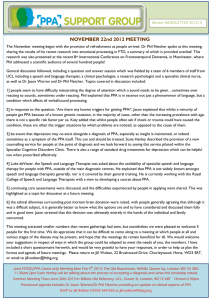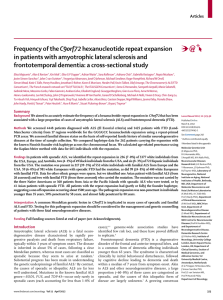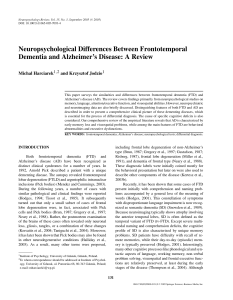Oxford Molecular Genetics Laboratory
advertisement
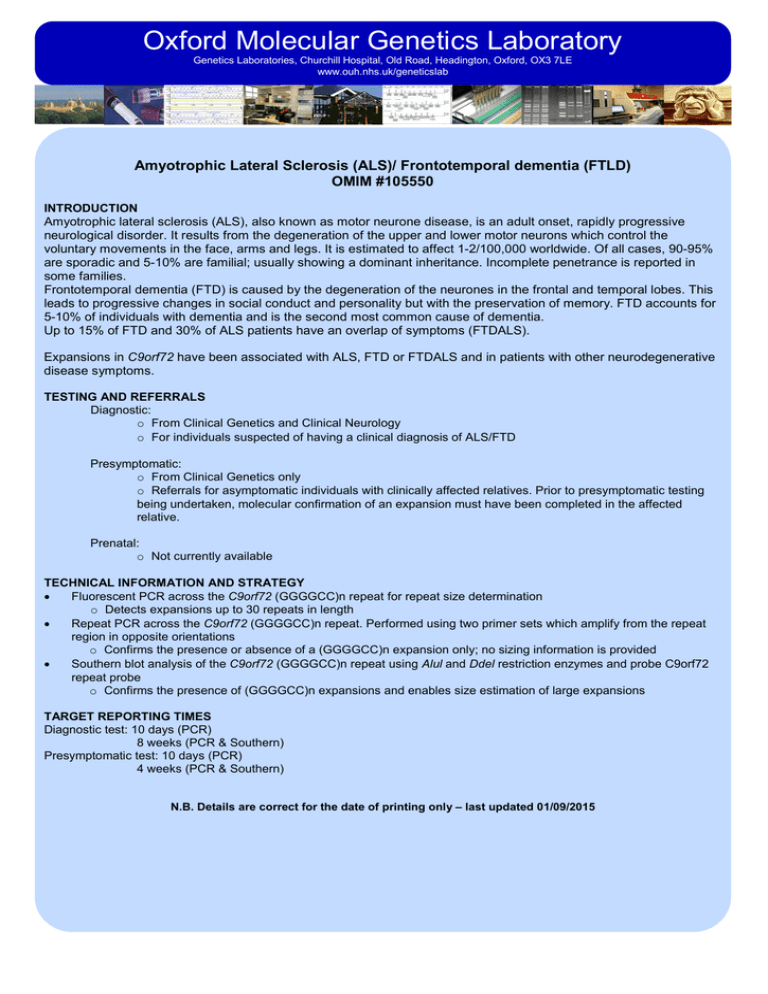
Oxford Molecular Genetics Laboratory Genetics Laboratories, Churchill Hospital, Old Road, Headington, Oxford, OX3 7LE www.ouh.nhs.uk/geneticslab Amyotrophic Lateral Sclerosis (ALS)/ Frontotemporal dementia (FTLD) OMIM #105550 INTRODUCTION Amyotrophic lateral sclerosis (ALS), also known as motor neurone disease, is an adult onset, rapidly progressive neurological disorder. It results from the degeneration of the upper and lower motor neurons which control the voluntary movements in the face, arms and legs. It is estimated to affect 1-2/100,000 worldwide. Of all cases, 90-95% are sporadic and 5-10% are familial; usually showing a dominant inheritance. Incomplete penetrance is reported in some families. Frontotemporal dementia (FTD) is caused by the degeneration of the neurones in the frontal and temporal lobes. This leads to progressive changes in social conduct and personality but with the preservation of memory. FTD accounts for 5-10% of individuals with dementia and is the second most common cause of dementia. Up to 15% of FTD and 30% of ALS patients have an overlap of symptoms (FTDALS). Expansions in C9orf72 have been associated with ALS, FTD or FTDALS and in patients with other neurodegenerative disease symptoms. TESTING AND REFERRALS Diagnostic: o From Clinical Genetics and Clinical Neurology o For individuals suspected of having a clinical diagnosis of ALS/FTD Presymptomatic: o From Clinical Genetics only o Referrals for asymptomatic individuals with clinically affected relatives. Prior to presymptomatic testing being undertaken, molecular confirmation of an expansion must have been completed in the affected relative. Prenatal: o Not currently available TECHNICAL INFORMATION AND STRATEGY • Fluorescent PCR across the C9orf72 (GGGGCC)n repeat for repeat size determination o Detects expansions up to 30 repeats in length • Repeat PCR across the C9orf72 (GGGGCC)n repeat. Performed using two primer sets which amplify from the repeat region in opposite orientations o Confirms the presence or absence of a (GGGGCC)n expansion only; no sizing information is provided • Southern blot analysis of the C9orf72 (GGGGCC)n repeat using Alul and Ddel restriction enzymes and probe C9orf72 repeat probe o Confirms the presence of (GGGGCC)n expansions and enables size estimation of large expansions TARGET REPORTING TIMES Diagnostic test: 10 days (PCR) 8 weeks (PCR & Southern) Presymptomatic test: 10 days (PCR) 4 weeks (PCR & Southern) N.B. Details are correct for the date of printing only – last updated 01/09/2015
